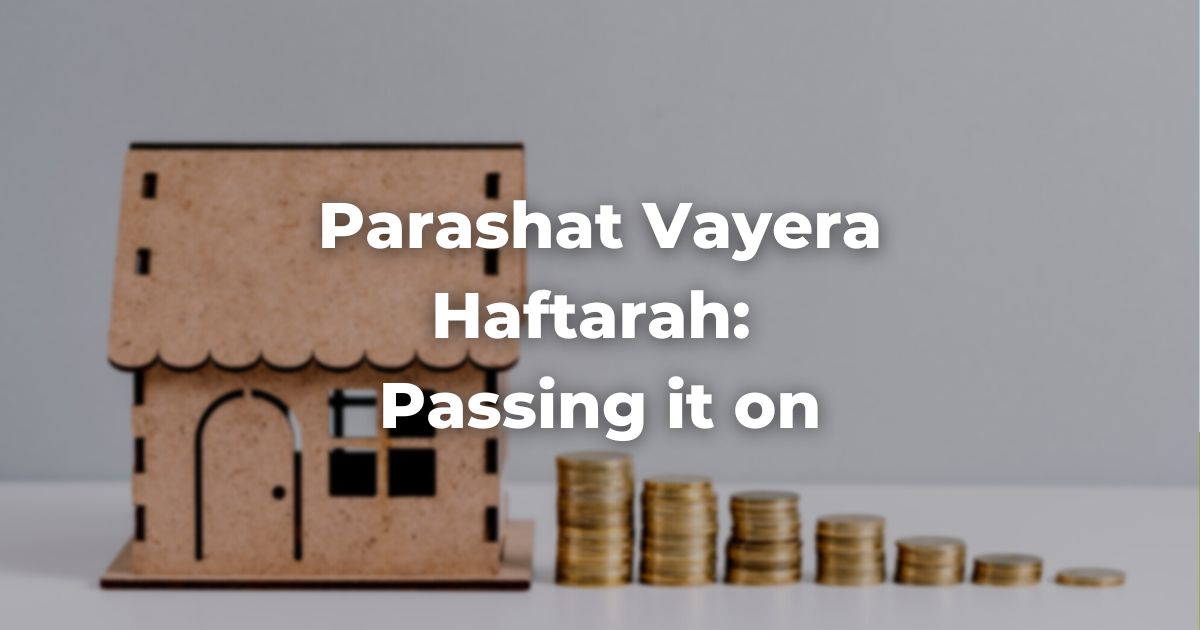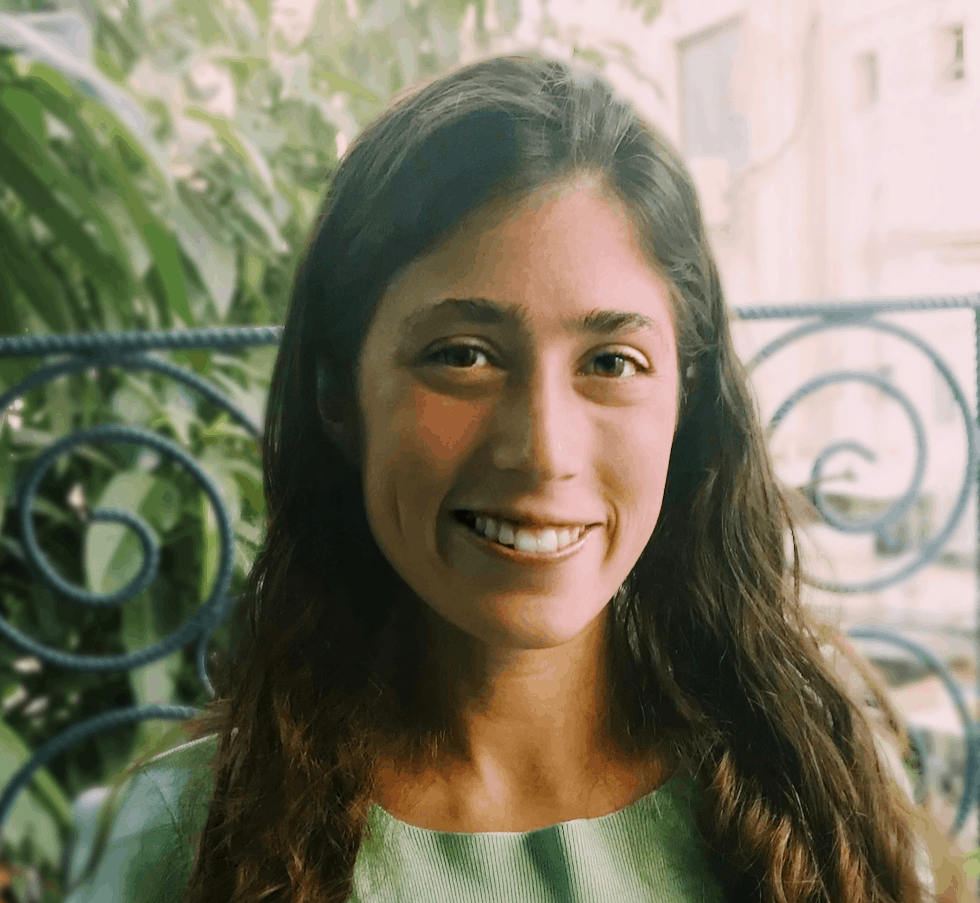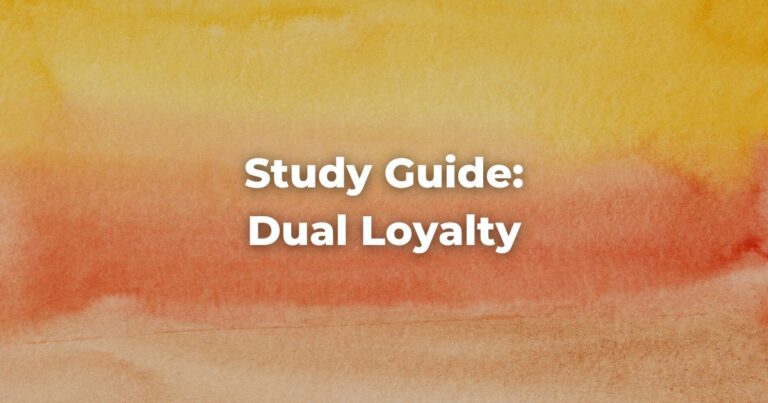Parashat Vayera Haftarah Reflection
What is it that we want to pass down to the next generation? For Abraham, the answer was fairly easy. God gave him a covenant, a promise, a blessing.
All of which were to come into effect fully only with his progeny. Isaac, the next generation, was to be a conduit of these great things which Abraham had received, passing them on down the generations.
Of course, all sorts of other things get passed down as well – if you nearly kill your progeny on the top of a mountain, it might take a few generations to work that trauma out. But the intent, the thing that was meant to be passed down, was the covenant, the promise, the blessing.
This week’s haftarah explores a very similar issue of what is to be passed down. Located in the Book of Kings, our haftarah comes from the Elisha stories.
The Book of Kings tells a story of generations, of passing down the good and the bad from ruler to ruler, sometimes living up to the model set by King David and sometimes being even worse than the worst of the kings who had come already.
In the middle of these tales of succession, we get a story of prophetic succession, the passing down of the role of prophet from Elijah to Elisha, as told in 2 Kings 2. It is in these fertile grounds of passing down a legacy that our haftarah is located.
We read the story of Elisha passing by the house of a big deal woman and her husband in Shunem.
The woman goes out of her way to be hospitable to Elisha, much like Abraham was hospitable to his guests in this week’s parashah. But she outdoes even Abraham, building Elisha a whole wing of the house to stay in when he passes through Shunem. And this seems to be enough for her.
She is not driven, as Abraham was, to wonder what will become of her legacy and her wealth once she passes. She has her house, her husband, and her prophet.
When Elisha offers to bring her to national prominence, speaking to the king or general of the army on her behalf, she says, quite simply, “I dwell among my people.” She seems to need nothing more, neither on a geographical scale nor when considering the legacy that she leaves.
And yet, she is given a son.
Elisha announces that in just another year, she will be embracing a son. The woman responds, “Don’t, my lord, man of God. Don’t lie to your maidservant.”
She has not asked for a child and she seems not to believe that one is possible, not dissimilar to Sarah’s laughter on the announcement of the coming birth of Isaac. But one does indeed arrive.
Why is Elisha so concerned with repaying the woman with a child and why is the woman so unconcerned with having one?
What is it that Elisha is looking to gift here? Elisha left behind his parents to follow the prophet Elijah, even calling Elijah his father. He has no children of his own, but rather is surrounded by a group of prophetic disciples, called the “children of prophets.” And he seems to be trying to pass on the prophetic legacy.
Even as this story unfolds in Shunem, Elisha is also teaching and testing one of these disciples, named Gehazi, giving him the chance to try out acting as a prophet. And yet, at the end of the Elisha stories, Elisha is left without progeny and without a successor. There is no line of prophets carrying on his traditions.
We have three different models in Abraham, the woman of Shunem, and Elisha.
Abraham and Elisha are consumed by a need to pass down what they have been given. And yet it is Abraham and the woman of Shunem who will end up being able to do so.
Reading a parashah and haftarah that focus on giving and receiving hospitality, perhaps we can learn to receive what we have been given by prior generations graciously and offer it gently to those who come after us.
See more: Parashat Vayera
Originally posted as part of the Conservative Yeshiva at the Fuchsberg Jerusalem Center’s Torah Sparks. Support TorahRefers to the first five books of the Hebrew Bible, the Tanakh, also called the Five Books of Moses, Pentateuch or the Hebrew equivalent, Humash. This is also called the Written Torah. The term may also refer to teachings that expound on Jewish tradition. Read more learning from the Fuchsberg Jerusalem Center/Conservative Yeshiva for leaders and seekers around the world here.
Authors
-

Bex Stern Rosenblatt is the Conservative Yeshiva’s Faculty-in-Residence for the Mid-Atlantic Region of the United States, teaching Tanach, using the techniques of close-reading, theater, feminist readings, and traditional commentators. Bex also directs the CY’s recruitment efforts in North America. After finishing her B.A. in History and German at Williams College, Bex received a Fulbright Grant to Austria. She later earned an M.A. in TanakhAn acronym for the name of the Hebrew Bible: Torah, Neviim, and Ketuvim. Read more from Bar Ilan University and has also studied at the Conservative Yeshiva and Bina Jerusalem. Bex is the founder of HavrutaA study partner. A hevruta is more than just a ‘study buddy’ it is a serious and personal relationship between colleagues. Also spelled: Havruta Read more Tel Aviv, an organization that facilitates guided pair-learning of the Tanakh.
View all posts -



The Fuchsberg Jerusalem Center (FJC) is a home in the heart of Jerusalem where leaders and seekers can find an authentic place in Jewish tradition to call their own. FJC offers opportunities to study, pray and explore within an egalitarian and inclusive setting, creating multiple pathways for finding personal and communal meaning.
View all posts






